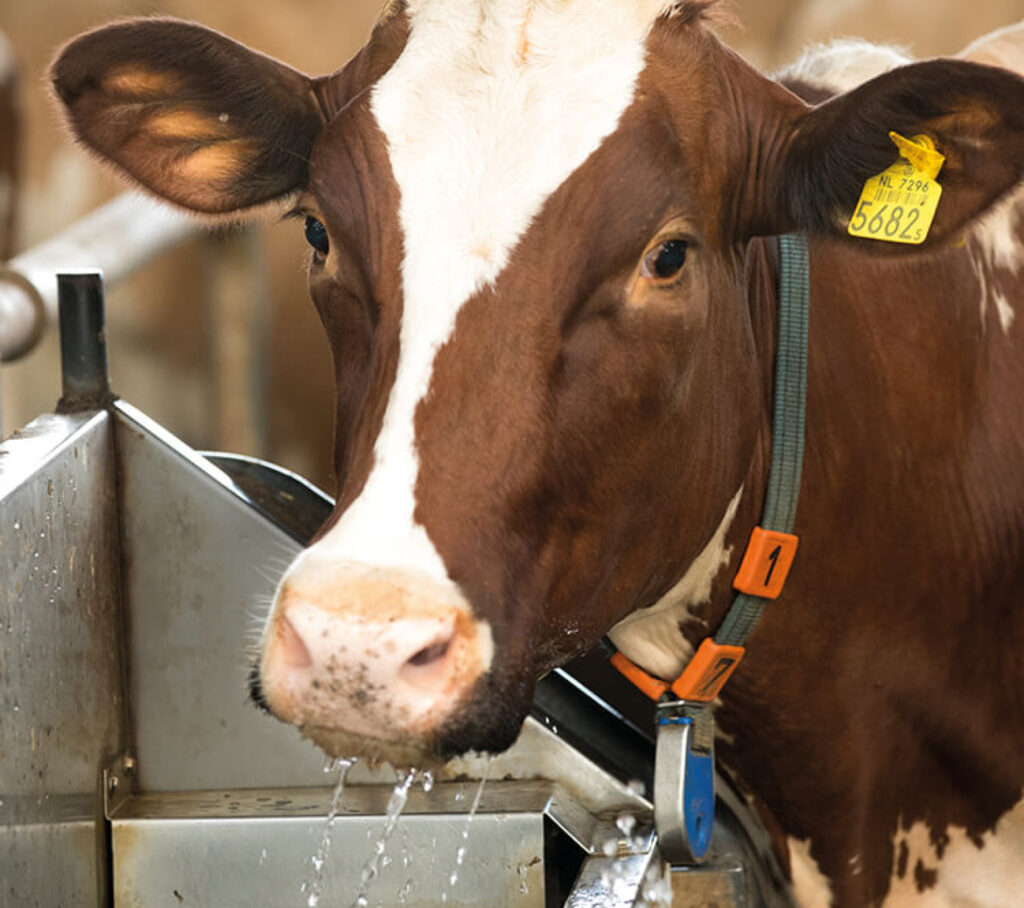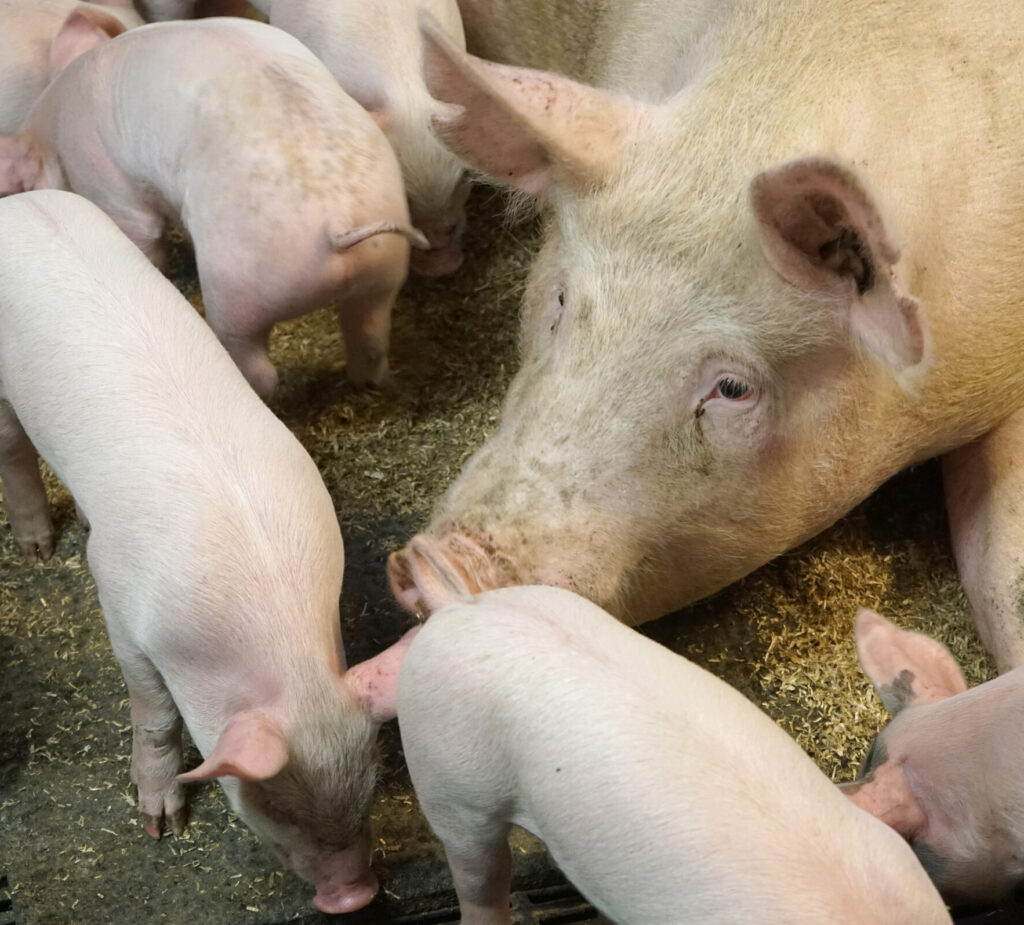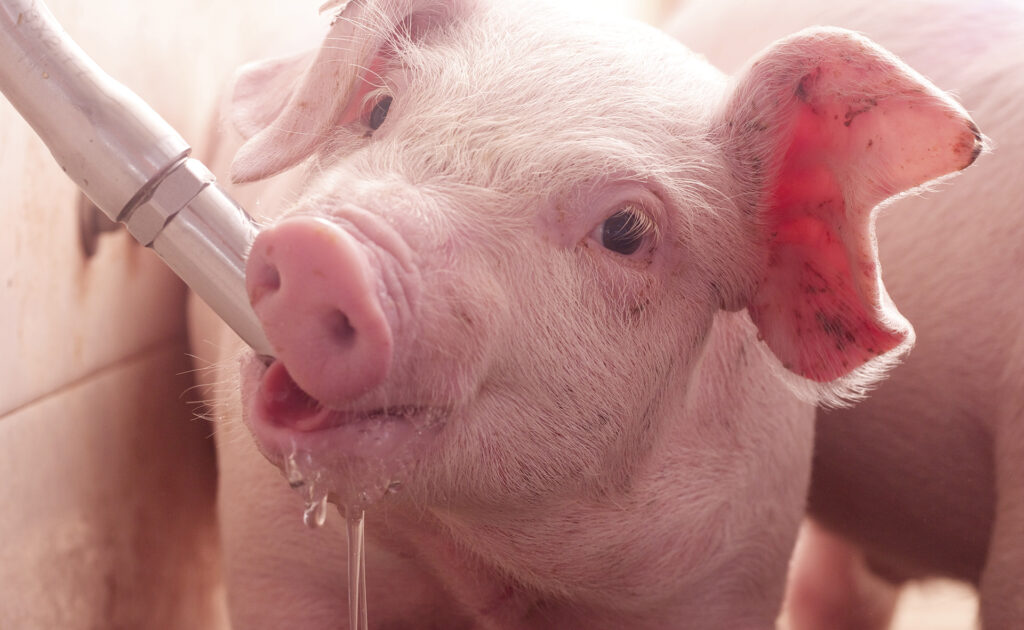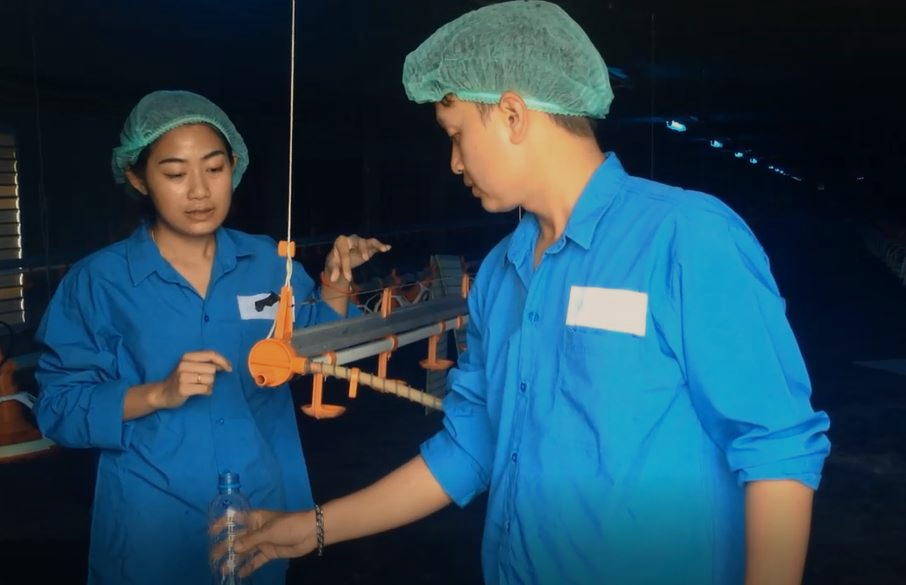The livestock sector is under considerable pressure to farm more sustainably and reduce CO₂ emissions. In addition to improving animal health and performance and reducing antibiotic use, at Kanters we like to take a broader view of sustainability in the sector and our business operations. That is why students from HAS Green Academy recently conducted research at a pig farm into the influence of Ultimate Acid on CO₂ emissions.
Sustainability gains through drinking water
Ultimate Acid is a drinking water additive of organic acids, enriched with minerals, which supports the digestion and health of piglets. These factors play an indirect but decisive role in sustainability: sick animals grow less efficiently, cause more losses and have higher emissions per unit produced. Drinking water additives therefore have the potential to contribute to reducing greenhouse gas emissions, among other things through lower feed conversion, reduced mortality and healthier manure quality.
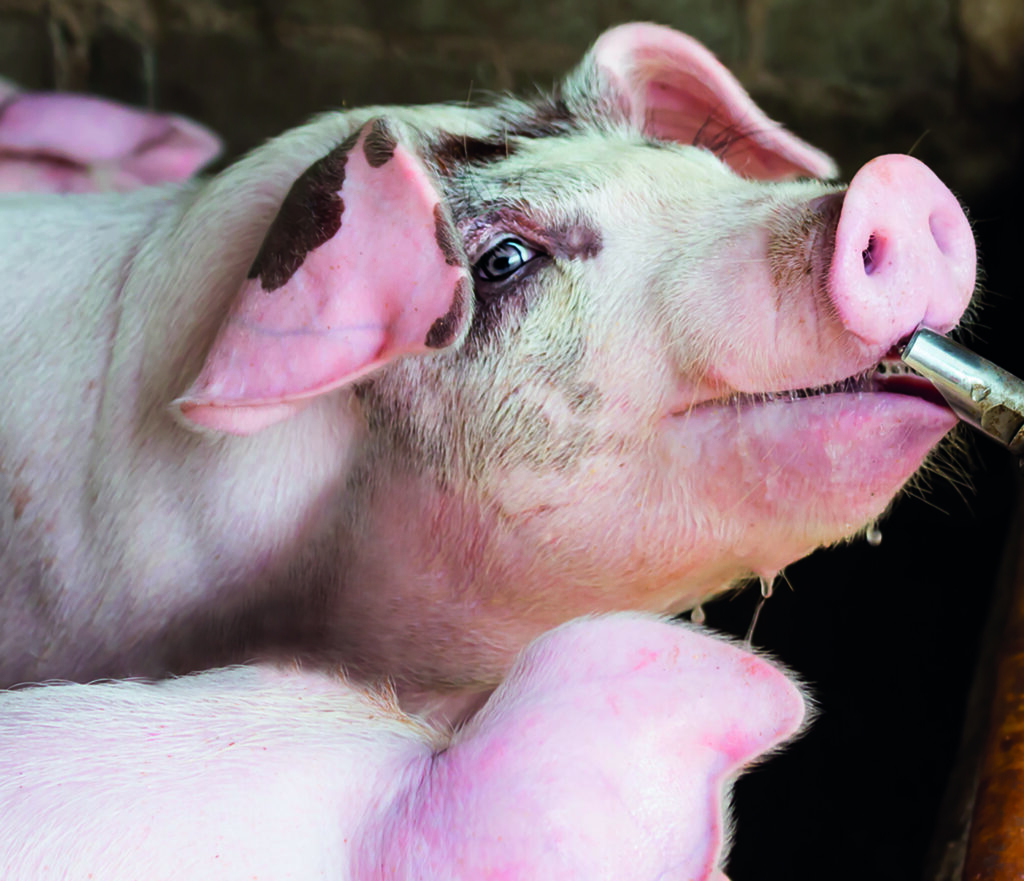
Heavier piglets, lower CO₂ emissions
The initial data show a promising picture. During the study, two groups were compared: a control group and a test group that received Ultimate Acid. The piglets in the test group grew faster on average and reached an average body weight of 13.6 kg compared to 11.9 kg in the control group. That is a difference of more than 1.5 kg per animal.
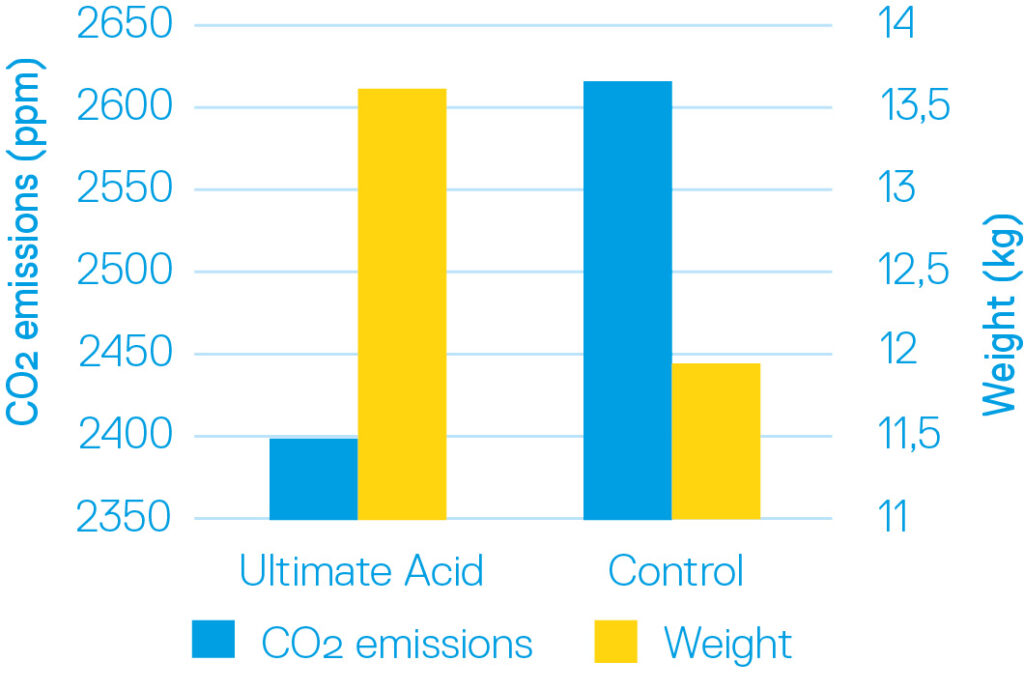
Because heavier animals also emit more CO₂, it is important to compare the emission values per kilogram of body weight. After recalculation, it appeared that the test group, despite their higher weight, actually emitted less CO₂ per kilogram than the control group: 2,398 ppm compared to 2,621 ppm. This suggests that Ultimate Acid contributes to a more efficient use of nutrients and thus to a lower climate impact per kilogram of growth.
Conclusion
The initial findings are promising. Not only do they show that the use of Ultimate Acid contributes to heavier piglets, but also that this can be accompanied by lower CO₂ emissions per kilogram of meat. This fits in perfectly with the ambition of many livestock farmers to reduce their ecological footprint without compromising on performance. The results form an encouraging basis for further research. At Kanters, we therefore continue to invest in solutions that are good for animals, farmers and the environment.
Are you also curious about how drinking water additives can help you produce more sustainably? Contact us and we will be happy to think along with you.
